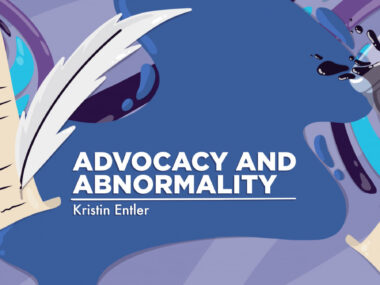Reducing Treatment Burden Key to CF Patients, Survey Suggests
Written by |

Adults with cystic fibrosis (CF) are willing to accept reductions in lung function and life expectancy as a trade-off for a reduced treatment burden, a survey of patient preferences suggested.
Over all other outcomes, the participants preferred a treatment choice that would extend their life expectancy by 10 years or more. However, their preferences were not homogenous, with some choosing a longer life while others valued lung function.
According to researchers, treatment burden should be routinely added as a secondary outcome measure in clinical trials for new CF interventions.
The survey study, “Treatment preference amongst people with cystic fibrosis: the importance of reducing treatment burden,” was published in Chest.
The average time a person with CF needs for treatment is estimated to be more than 1.5 hours per day, research indicates. This high treatment burden can impact health-related quality of life (HRQoL) and reduce treatment adherence, which is related to poorer outcomes.
Treatment burden ‘key’ preference
Simplifying treatment burden has been identified as a key research priority, based on surveys across CF patients and families.
Currently, outcome measures for new treatments are determined by clinicians and researchers. But there is a growing consensus that patients’ perspectives, and the benefits of treatment they would prefer, should be considered in developing, evaluating, and delivering new CF treatments.
The aim of this study by researchers in the U.K. was to understand treatment preferences from the perspective of a person with CF, how therapeutic outcomes influence the choice of treatment, and what outcome trade-offs patients are willing to make.
Adults attending a CF center were invited to enroll in an online survey, which was completed by 103 people with CF, (ages 18-76; 52%, female) The mean ppFEV1, a measure of lung function, was 69%, lower than the normal range above 90%. On average, participants spent 92 minutes each day managing 14 treatments.
Participants evaluated hypothetical CF treatment profiles with clinical outcomes defined by an impact on lung function, antibiotics for exacerbations, life expectancy, abdominal symptoms, and HRQoL. Treatment burdens included the use of inhaled medicine, pancreatic enzyme replacement therapy (PERT), and physiotherapy requirements.
People with CF preferred a treatment choice extending their expectancy by 10 years or more over all other factors, the survey showed. Improvement in lung function also had an impact on the choice of treatment. Regarding treatment burden, stopping physiotherapy was most preferred, followed by reducing PERT combined with easing abdominal symptoms.
The largest outcome trade-offs were for “excellent improvement in quality of life.” For this, on average, participants were willing to accept a loss of lung function of 8.2% ppFEV1 or 4.2 additional years of life.
Trade-offs to reducing treatment burden
To reduce their treatment burden, the participants were prepared to accept marked reductions in lung function or additional life expectancy.
To stop physiotherapy, participants were willing to lose 6.1% ppFEV1 in lung function, or 3.2 years. A loss of 5.3% ppFEV1 or 2.7 years was acceptable to reduce abdominal symptoms while reducing PERT. To lessen the time using inhaled medicines, patients were willing to accept a 4.4% ppFEV1 loss, or 2.3 fewer years.
Next, the team investigated the impact on preferences for CFTR modulator treatment. Participants not prescribed these therapies tended to show more value in decreased abdominal symptoms and HRQoL compared to a modest reduction in lung function. This group was willing to accept a larger loss in lung function to ease their abdominal symptoms.
The team noted that those not prescribed CFTR modulators tended to have a lower treatment burden than those on modulators. However, no other significant differences in clinical characteristics were observed.
Although a modeling analysis showed a longer life expectancy was the strongest driver of preference overall, the preference profiles fell into three subgroups.
Class 1, which included 43% of participants, was primarily marked by a preference for life expectancy gains but not a modest reduction in lung function and most treatment burden-related and abdominal symptom outcomes.
In contrast, Class 2, with 47% of participants, strongly valued lung function and reduced treatment burden, with stopping physiotherapy as the preferred treatment burden outcome.
Class 3, with 10%, were more likely to opt out of an additional treatment and were indifferent to a change in lung function. “Owing to the small sample membership for Class 3, preferences should be interpreted with caution,” the researchers noted.
In terms of clinical features, there was a statistically significant difference in lung function between those who were likely to belong to Class 1, preferring life expectancy gains, and Class 2, who valued lung function.
Compared to Class 1, Class 2 patients were more likely to have CF-related diabetes, longer overall treatment time, and a lower HRQoL. There were no differences between Class 1 and Class 2 in age, sex, or treatment burden or complexity.
Class 3 participants were more likely to be female than Class 1 and had significantly less treatment complexity and a lower treatment burden. Comparatively, Class 3 spent less time on all treatments, were less likely to receive intravenous (into-the-vein) antibiotics, and had a better HRQoL.
“The relative importance of treatment burden to people with CF, compared to life expectancy and lung function suggests it should be routinely captured in clinical trials as an important secondary outcome measure,” the researchers concluded. “When considering the patient perspective, it is important that decision makers recognise that the values of people with CF are not homogenous.”







